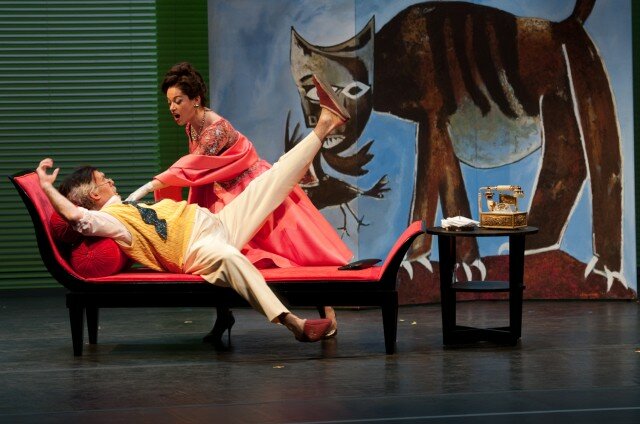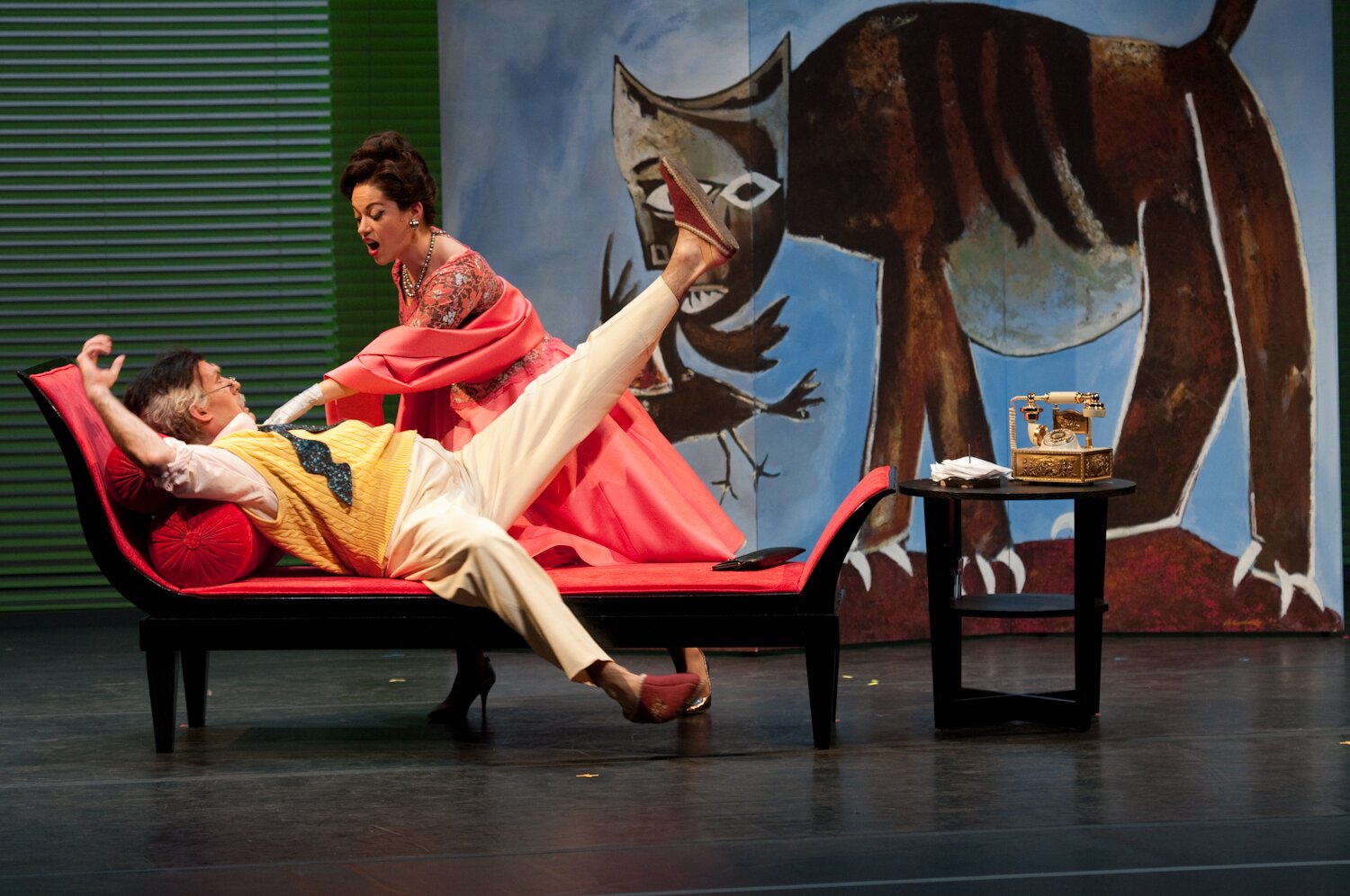
Donizetti’s Don Pasquale (at Meany Theater through April 7; tickets: $55 adults, $20 students) is a couple of hours of lightweight froth, very amusing in the right hands. Luckily for Seattle Opera Young Artists Program, it has those hands in charge. Artistic director Peter Kazaras is a master of detail who can flesh out the slimmest of stories and make it fun to watch as well as hear.
Essentially it’s the story of the old man who thinks he’s wed young woman: She leads him a merry dance until he is delighted to be rid of her, when his long-suffering nephew (who is the girl’s real love) gets her instead.
The Young Artist’s spring performance moved this year from Bellevue’s Meydenbauer to Meany Theater, and has two more performances next weekend. Saturday’s opening night saw bass Michael Uloth in the title role, with tenor Andrew Stenson as his nephew Ernesto, baritone David Krohn as Dr. Malatesta, Ernesto’s friend and Don Pasquale’s doctor, and soprano Amanda Opuszynski as Norina, the girl in the middle.
Fine singing from them all throughout was highlighted by a rare patter song for bass/baritone duet, with Uloth and Krohn aquitting themselves at full speed.
However, the opera story is so slight that it needs plenty of help from the acting and visuals to keep it alive and here the young singers excelled, particularly Uloth and Opuszynski, who have the lion’s share of the funny side of things.
The youthful Uloth portrays a creaky-jointed septuagenarian with a little pot belly and a long skinny face, topped by wisps of grey hair around a long visage adorned with rimless glasses. His mannerisms fit the picture, especially his efforts to sit down and get up again.
The pert and lively Opuszynski, the center of the action, has a blast pretending to be a shy, demure, virginal girl, dressed to match, until the pseudo-knot is tied when she turns into a virago. Krohn, whose character masterminds the plot, deftly keeps things going, feeding the old man pills and water when it all seems to be getting too much for him, while Stenson, the straight man in the story, doesn’t have much to do except be upset at the start until he’s let into the plot, and then ardent towards the end.
Colorful costumes, designed with flair by the UW’s senior lecturer Deborah Trout, come from the 1950s post-war era, when dresses were full skirted and pretty.
Sets are minimal but Don Pasquale’s era show in the projected backdrops of heavy draperies and lots of gilded plasterwork, and Norina’s totally modern art choices come as a shocking departure. Clever touches abound, such as the moving laundry line in Norina’s sparsely furnished original apartment which brings in clothing, not to mention messages attached to a clothes peg.
Brian Garman conducted the orchestra with deft pacing in Donizetti’s charming music, and the whole is an evening’s humorous entertainment.
